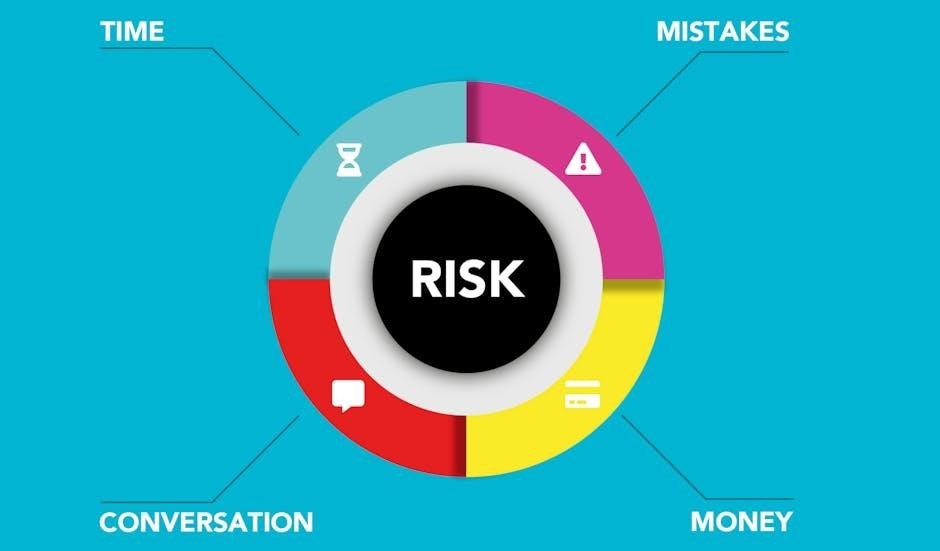The Importance of Time Management in Nursing
Effective time management is crucial for nurses to enhance productivity, efficiency, and patient care quality while reducing stress and burnout in demanding healthcare environments.
1.1. Definition and Role of Time Management in Nursing
Time management in nursing refers to the skill of optimizing task completion and prioritization to enhance patient care, efficiency, and productivity. It involves organizing tasks effectively to meet deadlines and patient needs while minimizing stress. The role of time management is critical in ensuring that nurses can balance multiple responsibilities, such as administering medications, monitoring patients, and documenting care, all while maintaining high standards of quality and safety. Effective time management is a learned skill that supports both individual and team performance, ultimately benefiting patient outcomes and organizational success.
1.2. Impact of Time Management on Patient Care and Safety
Proper time management significantly enhances patient care and safety by enabling nurses to prioritize tasks effectively, reducing delays in critical interventions, and minimizing errors. Effective time management ensures timely administration of medications, accurate monitoring of patient conditions, and efficient response to emergencies. It also reduces distractions and interruptions, allowing nurses to focus on high-quality care. Improved time management leads to better patient outcomes, reduced complications, and safer care overall, making it a cornerstone of professional nursing practice.
1.3. The Relationship Between Time Management and Organizational Performance
Effective time management is vital for enhancing organizational performance in healthcare settings. It increases productivity, streamlines workflows, and ensures efficient allocation of resources. When nurses manage their time well, it supports the organization’s goals, such as improving patient outcomes and reducing operational delays. Strong time management also fosters a culture of accountability and collaboration, directly contributing to the overall success of the healthcare facility. By prioritizing tasks and minimizing waste, nurses play a key role in advancing organizational efficiency and achieving strategic objectives.

Effective Time Management Strategies for Nurses
Effective strategies include planning the workday, setting clear priorities, delegating tasks, and minimizing interruptions to maximize productivity and efficiency in patient care.
2.1. Planning Your Workday in Advance
Planning the workday in advance is essential for nurses to manage tasks efficiently, even in unpredictable environments. Creating a structured schedule helps prioritize activities, allocate time for each task, and anticipate potential interruptions. By outlining key responsibilities and deadlines, nurses can ensure seamless workflow and better patient care. Although flexibility is necessary due to emergencies, having a clear plan reduces stress and enhances productivity. Effective planning also allows nurses to delegate tasks and focus on critical responsibilities, ensuring optimal use of time and resources throughout their shift.
2.2. Setting Goals and Priorities
Setting clear goals and priorities is vital for nurses to maintain focus and efficiency. By identifying short- and long-term objectives, nurses can align tasks with patient needs and organizational expectations. Prioritizing activities using frameworks like the ABCD method (All, Batching, Chunking, Delegation) helps manage workload effectively. Establishing SMART (Specific, Measurable, Achievable, Relevant, Time-bound) goals ensures clarity and direction. This approach reduces stress, enhances task management, and enables nurses to allocate time wisely, even during emergencies, ensuring high-quality patient care and operational efficiency.
2.3. Delegating Tasks Effectively
Delegating tasks effectively is essential for nurses to manage workload efficiently while maintaining patient care standards. By assigning responsibilities to team members based on their skills and competencies, nurses can prioritize critical tasks and ensure timely completion. Clear communication and defined expectations are crucial for successful delegation. This approach not only enhances productivity but also fosters a collaborative work environment, reducing the risk of task overload and burnout. Effective delegation allows nurses to focus on high-priority tasks, ensuring better patient outcomes and a more efficient workflow.
2.4. Managing Interruptions and Minimizing Distractions
Managing interruptions and minimizing distractions is vital for nurses to maintain focus on critical tasks. Frequent disruptions can hinder productivity and patient safety. Strategies include setting clear boundaries, prioritizing urgent tasks, and using communication tools to reduce non-essential interruptions. Implementing “do not disturb” protocols during high-concentration tasks and delegating non-critical responsibilities can also help. By minimizing distractions, nurses can improve task accuracy, enhance patient care quality, and maintain a more organized workflow, ultimately contributing to better time management and reduced stress in the workplace.
2.5. Focusing on Urgent and Important Activities
Focusing on urgent and important activities is essential for effective time management in nursing. Nurses often face multiple tasks, but prioritizing critical ones ensures patient safety and efficient care delivery. Using frameworks like the Eisenhower Matrix can help categorize tasks by urgency and importance. By allocating time to high-priority activities first, nurses can reduce stress, meet deadlines, and maintain high standards of care. This approach not only enhances productivity but also supports better decision-making and overall organizational goals, ultimately improving patient outcomes and professional satisfaction.

Benefits of Time Management in Nursing Practice
Effective time management in nursing enhances productivity, reduces stress, and improves patient outcomes, leading to greater job satisfaction and professional growth opportunities.
3.1. Improved Productivity and Efficiency
Effective time management significantly enhances nurses’ productivity and efficiency, allowing them to complete tasks promptly and focus on critical patient care activities. By prioritizing tasks, delegating effectively, and minimizing distractions, nurses can optimize their workflow. This leads to better task completion rates and the ability to handle multiple responsibilities without compromising quality. Improved productivity also enables nurses to allocate more time to direct patient care, fostering a more organized and efficient work environment. Ultimately, this results in higher job satisfaction and reduced stress, as nurses feel more in control of their workload.
3.2. Reduced Stress and Burnout
Effective time management plays a vital role in reducing stress and burnout among nurses. By prioritizing tasks, minimizing interruptions, and maintaining a structured workflow, nurses can better manage their workload. This leads to a sense of control and accomplishment, lowering anxiety levels. Reduced stress enhances overall well-being and job satisfaction, allowing nurses to handle emergencies and high-pressure situations more effectively. Improved time management also prevents overwhelm, fostering resilience and mental clarity. Ultimately, it creates a healthier work environment, reducing the risk of burnout and promoting long-term career sustainability in the demanding field of nursing.
3.3. Enhanced Patient Outcomes and Satisfaction
Effective time management significantly improves patient outcomes and satisfaction by ensuring timely and efficient delivery of care. Nurses who prioritize tasks and allocate time wisely can address patient needs promptly, reducing delays in treatments and interventions. This leads to better health outcomes, as patients receive appropriate care when it matters most. Improved organization also enhances communication, reducing errors and misunderstandings. Patients perceive this as high-quality, attentive care, boosting their satisfaction levels. Ultimately, efficient time management fosters trust and confidence in the healthcare system, benefiting both patients and healthcare providers.
3.4. Increased Opportunities for Professional Advancement
Mastering time management enhances nurses’ credibility and competence, making them strong candidates for leadership roles and specialized positions. By demonstrating efficiency and prioritization skills, nurses showcase their ability to handle complex responsibilities. This proficiency often leads to promotions, advanced certifications, and opportunities for professional growth. Effective time management also allows nurses to take on additional projects, furthering their expertise and visibility within the healthcare organization. Such skills make nurses more competitive in the job market and position them for long-term career success and advancement in the nursing profession.

Barriers to Effective Time Management in Nursing
High workloads, limited staffing, frequent interruptions, emergencies, and lack of clear priorities hinder effective time management, impacting nurses’ ability to deliver efficient and focused patient care.
4.1. High Workload and Limited Staffing
In nursing, high workloads and insufficient staffing are significant barriers to effective time management. Heavy patient loads and demanding care requirements often overwhelm nurses, making it difficult to prioritize tasks efficiently. Limited staff availability forces nurses to multitask excessively, leading to increased stress and potential errors in patient care. This situation is exacerbated by the unpredictable nature of healthcare environments, where emergencies can suddenly arise, further complicating time management efforts and reducing the quality of care provided to patients.
4.2. Frequent Interruptions and Emergencies
Frequent interruptions and emergencies are major challenges for nurses, disrupting workflow and making time management difficult. These unexpected events, such as urgent patient needs or critical situations, often require immediate attention, forcing nurses to reprioritize tasks quickly. Constant disruptions can lead to decreased efficiency, increased stress, and potential errors, as nurses struggle to maintain focus and complete tasks within limited time frames. Effective strategies to minimize distractions and manage emergencies are essential to maintain productivity and ensure high-quality patient care in dynamic healthcare settings.
4.3. Lack of Clear Priorities and Delegation Skills
A significant barrier to effective time management in nursing is the lack of clear priorities and delegation skills. Without well-defined priorities, nurses may struggle to allocate time effectively, leading to inefficiency and overwhelm. Additionally, poor delegation skills can result in tasks being mishandled or left undone, increasing workload and stress. Clear communication of priorities and proper delegation ensure tasks are distributed appropriately, optimizing team performance and reducing individual burden. Addressing these gaps is essential for improving time management and overall job satisfaction in nursing practice.

Tools and Resources for Time Management in Nursing
Utilize digital apps, checklists, and organizational charts to streamline tasks. Educational resources and training programs also enhance nurses’ ability to manage time effectively and efficiently.
5.1. Time Management Apps and Digital Tools
Digital tools like Trello, Asana, and mobile apps designed for nurses help streamline task management, set reminders, and track patient care activities. These apps enable nurses to prioritize tasks, delegate effectively, and maintain organization. Electronic Health Records (EHR) systems also play a crucial role in managing time by providing quick access to patient data and reducing paperwork. Additionally, apps for shift management and communication enhance team coordination, ensuring efficient workflow. These tools are essential for modern nursing, promoting productivity and reducing stress in fast-paced healthcare environments.
5.2. Checklists and Organizational Charts
Checklists and organizational charts are invaluable tools for nurses to streamline workflows and ensure accountability. Checklists help nurses systematically complete tasks, such as patient care routines or medication administration, reducing errors and ensuring consistency. Organizational charts clarify roles and responsibilities, improving delegation and communication among team members. These tools enhance task prioritization, reduce duplication of efforts, and promote a structured approach to nursing care. By integrating checklists and charts, nurses can better manage their workload, ensuring efficient and high-quality patient care while maintaining accountability and order in dynamic healthcare settings.
5.3. Educational Resources and Training Programs
Educational resources and training programs play a vital role in enhancing nurses’ time management skills. Workshops, webinars, and online courses offer evidence-based strategies to improve efficiency and reduce stress. These programs often include modules on prioritization, delegation, and task management, tailored to real-world nursing challenges. Studies and guides, such as those found in PDF formats, provide actionable tips and frameworks for effective time management. By investing in these resources, nurses can develop sustainable skills, leading to improved patient care and professional growth, while fostering a culture of continuous learning and adaptability in healthcare settings.

Best Practices for Implementing Time Management in Nursing
Prioritize tasks based on patient needs, communicate effectively with the team, and regularly review and adjust time management plans to ensure efficient and high-quality care delivery.
6.1. Prioritization of Tasks Based on Patient Needs
Prioritizing tasks based on patient needs ensures that critical care is delivered promptly, enhancing patient outcomes and safety. Nurses should assess urgency and acuity to allocate time effectively, focusing on high-priority tasks first. This approach minimizes delays in care and optimizes resource use. Tools like the ABCD method (Activity, Background, Current, and Danger) can help categorize tasks efficiently. Effective prioritization reduces stress and burnout while maintaining quality care. Regularly reviewing patient conditions allows nurses to adjust priorities dynamically, ensuring timely interventions and better overall management of workload.
6.2. Effective Communication with Team Members
Effective communication with team members is vital for seamless task coordination and reducing errors. Clear, concise updates ensure everyone understands their roles and responsibilities. Active listening and regular feedback foster collaboration, while shared priorities align the team’s efforts. Communicating patient updates promptly allows nurses to adjust plans dynamically. Open dialogue also enhances problem-solving and decision-making, ensuring efficient use of time. Regular team meetings and handoffs improve continuity of care. Strong communication not only boosts teamwork but also contributes to a more organized and efficient work environment, ultimately benefiting patient outcomes and job satisfaction.
6.3. Regular Review and Adjustment of Time Management Plans
Regularly reviewing and adjusting time management plans ensures adaptability to evolving patient needs and workplace demands. Nurses should reflect on completed tasks, identifying inefficiencies and areas for improvement. Adjustments may involve reallocating time, reprioritizing tasks, or incorporating feedback from colleagues. This iterative process fosters continuous improvement, enabling nurses to optimize their schedules and enhance productivity. By periodically assessing their plans, nurses can better align their actions with organizational goals and deliver high-quality patient care. This proactive approach ensures time management strategies remain effective and relevant in dynamic healthcare environments.

The Role of Leadership in Promoting Time Management
Leadership plays a pivotal role in fostering effective time management by setting clear expectations, modeling efficient practices, and creating a supportive environment that enhances productivity and accountability.
7.1. Nurse Managers as Role Models for Time Management
Nurse managers serve as role models by demonstrating effective time management skills, fostering a culture of efficiency, and prioritizing tasks to enhance team productivity and patient outcomes. They allocate responsibilities, delegate effectively, and maintain organization, inspiring staff to adopt similar practices. By modeling clear communication and focus, they help reduce workplace stress and improve overall performance. Their ability to balance tasks and lead by example ensures better time utilization, directly benefiting patient care and organizational success.
7.2. Creating a Supportive Work Environment for Effective Time Management
Leadership plays a pivotal role in fostering a supportive work environment that promotes effective time management. By encouraging clear communication, prioritization, and delegation, nurse managers help reduce workplace chaos. Implementing tools like checklists and digital apps enhances organization and task completion. A supportive environment also minimizes distractions, allowing nurses to focus on critical tasks. This culture of efficiency not only improves productivity but also boosts job satisfaction and patient care quality, ensuring a more structured and stress-free workplace for healthcare professionals.

Time Management for Nursing Students and New Graduates
Effective time management is essential for nursing students and new graduates to balance academic demands and clinical responsibilities efficiently, ensuring a smooth transition to professional roles.
8.1. Developing Time Management Skills During Nursing Education
Developing time management skills during nursing education is vital for balancing academic and clinical demands. Nursing students often face heavy workloads, requiring efficient task prioritization and organization. Utilizing planners, digital tools, and goal-setting strategies helps manage study schedules and clinical rotations effectively. Prioritizing tasks based on urgency and importance ensures students meet deadlines and prepare adequately for exams. Additionally, minimizing distractions and focusing on key responsibilities can enhance learning efficiency. Cultivating these skills early on reduces stress and improves overall performance, laying a strong foundation for transitioning into professional nursing roles.
8.2. Transitioning from Student to Professional Nurse
Transitioning from a nursing student to a professional nurse requires refining time management skills to handle increased responsibilities. New graduates face complex patient care scenarios, documentation, and teamwork demands. Effective time management helps prioritize tasks, balancing patient care with administrative duties. Nurses must adapt to unpredictable workflows, managing emergencies while maintaining efficiency. This transition also involves emotional and mental adjustments, as decision-making becomes more autonomous. Developing routines, seeking mentorship, and leveraging organizational tools can ease the shift, ensuring a smooth and confident entry into professional nursing practice.

Work-Life Balance and Time Management in Nursing
Achieving work-life balance through effective time management enhances job satisfaction and overall well-being for nurses, ensuring they can deliver high-quality patient care without compromising personal life.
9.1. Balancing Work and Personal Life for Better Job Satisfaction
_balancing work and personal life is essential for nurses to maintain job satisfaction and overall well-being. Effective time management helps reduce stress and burnout, allowing nurses to focus on both their professional and personal responsibilities. By prioritizing tasks and managing workloads, nurses can create a healthier work-life balance, which contributes to increased job satisfaction and improved quality of life. This balance also enhances their ability to provide compassionate and high-quality patient care, as a well-rested and fulfilled nurse is more productive and engaged in their role._
9.2. The Impact of Work-Life Balance on Patient Care Quality
A healthy work-life balance significantly enhances patient care quality by reducing nurse burnout and improving focus. When nurses manage their personal and professional responsibilities effectively, they experience less stress, leading to fewer errors and better decision-making. This balance fosters a more attentive and compassionate approach to patient care, ultimately improving patient outcomes and satisfaction. Studies show that nurses with adequate work-life balance are more likely to deliver high-quality care, ensuring patient safety and satisfaction in healthcare settings.

Measuring the Effectiveness of Time Management in Nursing
Effectiveness is measured through productivity, task completion rates, patient satisfaction, and reduced stress levels, ensuring efficient care delivery and improved workplace performance in nursing practice.
10.1. Assessing Productivity and Task Completion Rates
Assessing productivity and task completion rates involves tracking how efficiently nurses accomplish their duties within set timeframes. This evaluation helps determine if time management strategies are effective. By monitoring task completion, nurses can identify areas for improvement, ensuring optimal use of their time. Productivity metrics often include the number of tasks completed, accuracy, and adherence to deadlines. High productivity and task completion rates indicate strong time management skills, leading to improved patient care and overall job satisfaction. Regular assessments enable nurses to refine their strategies and maintain efficiency in fast-paced healthcare environments.
10.2. Evaluating Patient Satisfaction and Outcomes
Evaluating patient satisfaction and outcomes is a critical measure of effective time management in nursing. Timely interventions, consistent care, and efficient task completion directly impact patient well-being. Higher patient satisfaction scores often correlate with well-organized nursing practices. Tools such as patient surveys and HCAHPS assessments help quantify these outcomes. Positive results indicate that time management strategies are contributing to improved care quality. Conversely, low satisfaction may highlight areas needing adjustment. Ultimately, the ability to balance tasks while maintaining patient-focused care is a key indicator of successful time management in nursing practice.
10.3. Monitoring Stress Levels and Burnout
Monitoring stress levels and burnout is essential for evaluating the effectiveness of time management in nursing. High stress and burnout often result from poor time management, leading to decreased job satisfaction and reduced patient care quality. Nurses who effectively manage their time tend to experience lower stress levels, as they can better balance their workload and personal well-being. Tools like stress assessment surveys and burnout inventories help identify areas needing improvement. By addressing these issues, nurses can maintain their mental and physical health, ensuring sustained professionalism and patient-focused care.
